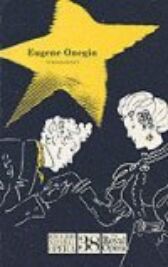Synopsis
Eugene Onegin - English National Opera Guide 38 (includes libretto)
 $22.99
$22.99
Published by John Calder Publications
Eugene Onegin is the most popular of Tchaikovsky's operas
This tender, lyrical and passionate story of unrequited love of Tatyana for the world-weary Onegin holds a special place in Russian hearts and has exerted an irresistible hold over audiences for over a hundred years
With its combination of intimate private moments and sumptuous public scenes, the opera is one of the most fully achieved ever written where each Act is tightly constructed around an antithesis of public and private scenes, and the dances are integral to the drama
The essence of both opera and poem is yearning, whether the artist's quest for his muse, or the lover for the beloved
Both poet and composer are true, in their quite different ways, to this theme and Tatyana's Letter Scene and the Polonaise are two much-loved glories of the score
Entitled 'Lyrical Scenes after Pushkin' by the composer, the work takes as its basis the poem of the same name by the great Russian writer Alexander Pushkin
The essays included in this guide explore the subtle and unexpected relationship between the words and music
There is an article comparing Pushkin's original with its treatment in the opera, a detailed musical analysis and an appreciation of Tchaikovsky's particular skill as a word-setter
An essay on its performance history details the contributions of the most notable artists who have taken part in productions of the work
Illustrations, a thematic guide, the full libretto with English translation and reference sections are also included
REVIEWS
'Brilliantly produced and superb value' ~ The Sunday Times
'The first thing noticeable about the revamped Opera Guides series ... is how much more solid and attractive these volumes are compared with the old ones. Production values are up, with more appealing design, clearer print and much better paper, making these books altogether more shelf-worthy' ~ BBC Music Magazine
'Helpful, concise and stimulating' ~ The Spectator
"An enriching read it offers much food for thought on the possible significance and unique nature of Tchaikovsky's best-loved opera' ~ BBC Music Magazine